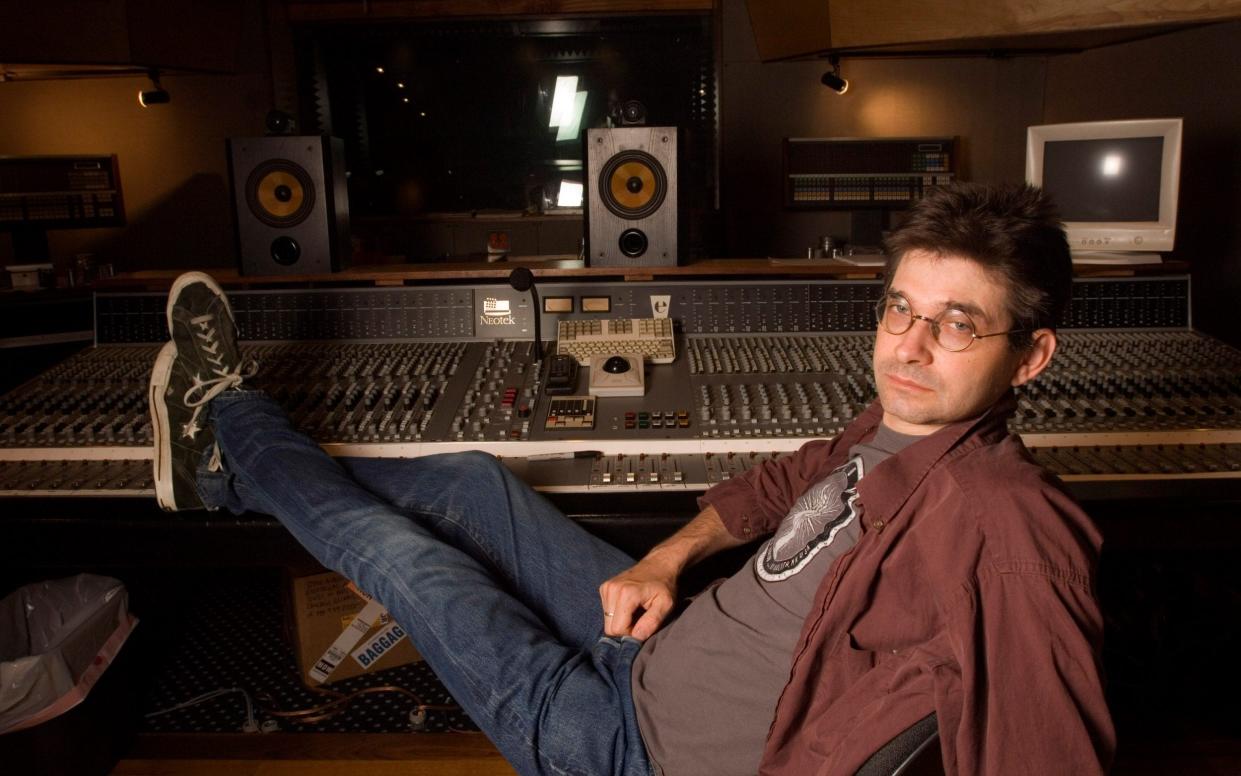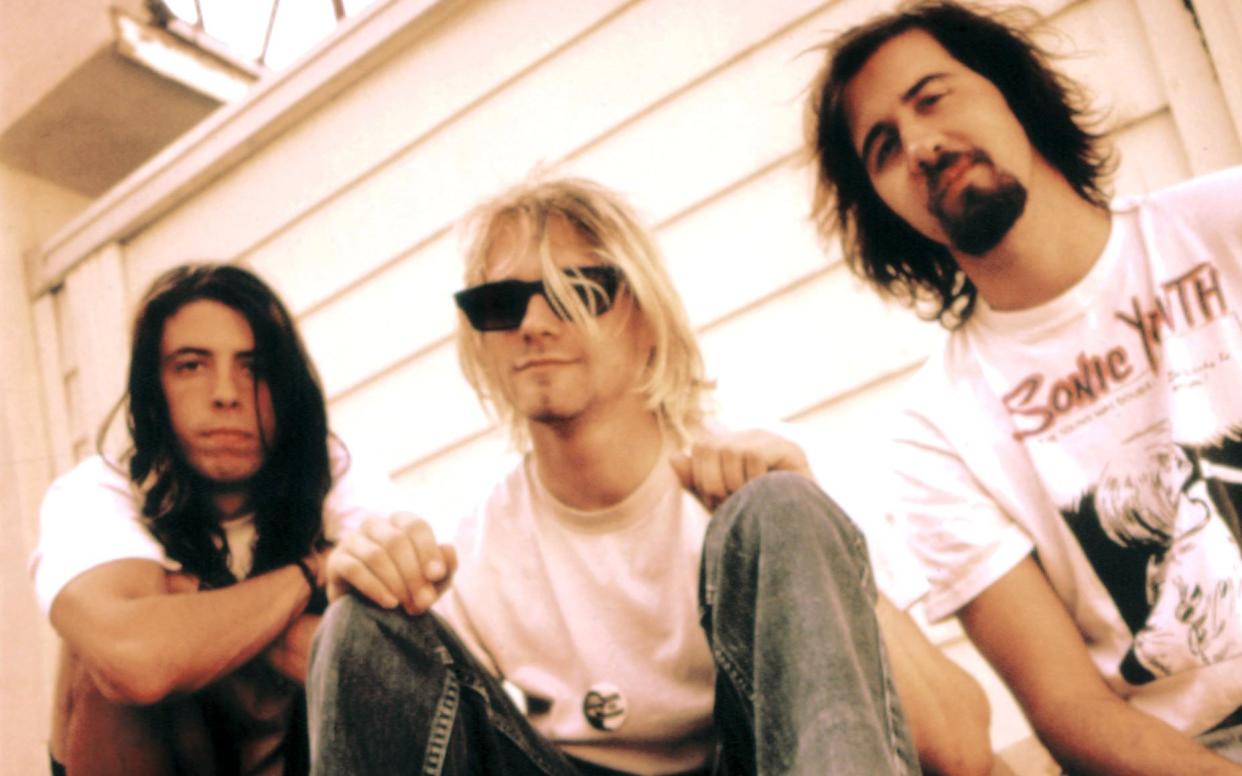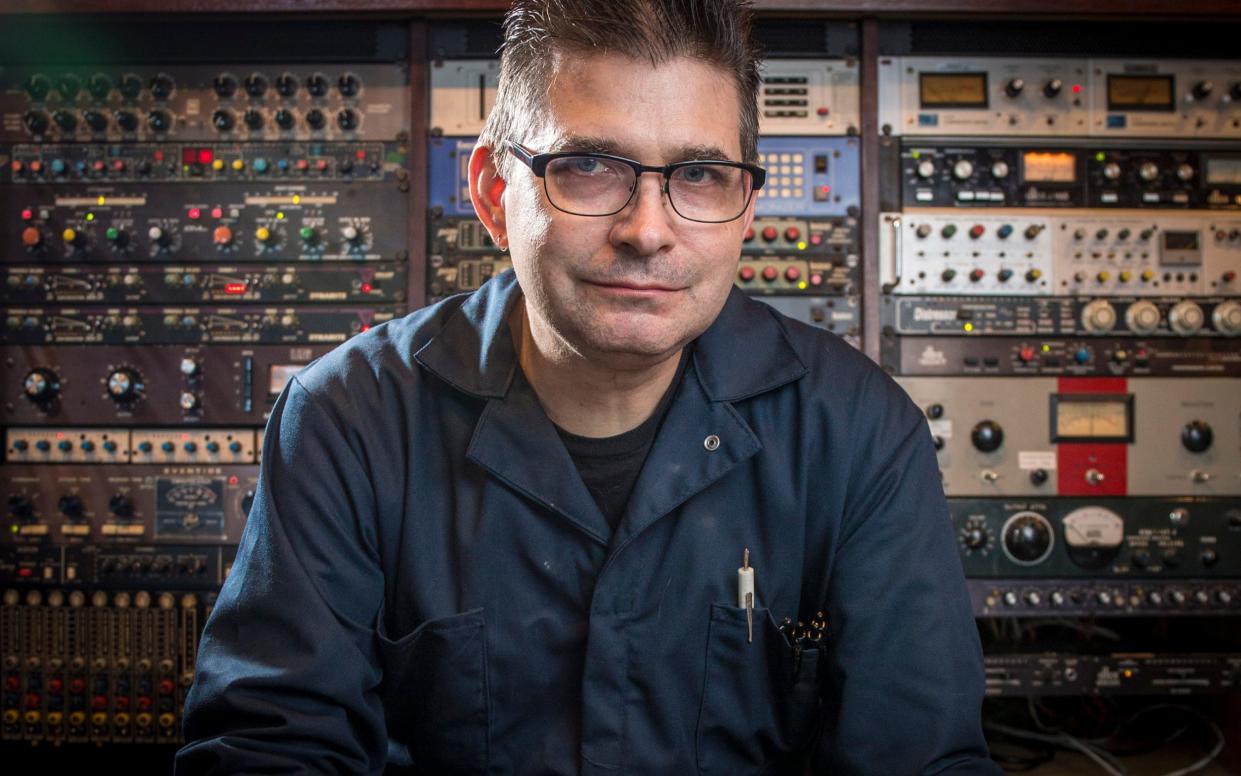Steve Albini was the Robespierre of punk rock

When Steve Albini opened the door to his modest Central London hotel room in spring 2002, it was hard to believe that the bespectacled little man in front of me – five-foot-seven at most, and dressed in a khaki jumpsuit like Sting in the early days of The Police – was the virulent and ever-controversial conscience of American punk rock.
With his mid-’80s band, Big Black, Albini had taken that challenging form of music to new extremes of noise and antagonism, achieving transatlantic infamy within the same wave of noisenik bands that brought Sonic Youth, Dinosaur Jr and eventually Nirvana. When his first band broke up, he went a step further by naming his next Rapeman, after a Japanese comic which today it’s hard to believe even existed – or indeed that he would defend that choice of nomenclature to the last as an artistic one, designed to provoke thought. In the MeToo era, it simply wouldn’t happen.
Yet here, in person, this legendary agent provocateur from Chicago turned out to be diminutive and benign. He was on a fleeting, low-budget visit to London to promote the defiantly anti-corporate All Tomorrow’s Parties festival, which he and his latest band, Shellac, were curating at Pontin’s holiday camp in Camber Sands. He’d brought his partner along for the trip to do some shopping and see the sights, and she was face down on their double bed, wiped out with jetlag. “I’m sorry, honey,” he whispered in her ear apologetically, “I have to talk about myself for an hour or so – if that doesn’t send you off to sleep, nothing will”.
In conversation, he talked with meticulous reasoning and wicked humour, but also a ferocious lack of compromise. If punk was rock’s version of the French Revolution, then Albini was its Robespierre, who rose to prominence after the first onslaught with an even stronger, near-puritanical drive to overthrow the lazy attitudes and practices of the old order.
Quite apart from the hideous songs about child abuse, arson and small-town violence, he revelled in confusing and winding up his audience whenever the opportunity arose. One record cover declared, “Steve uses and endorses heroin” (not true: he was, and apparently remained, teetotal on all fronts). Another album sleeve, in place of the usual lyric sheet, featured the warning: “Our lyrics are none of your business.”
“That still makes perfect sense to me,” he told me. “All that mattered to us was that there be some vocals, as an instrument of emotional intensity. So we’d pick topics that were of interest to us, things we’d talked about, specific incidents, newspaper stories, or abstract ideas. “Uniquely in rock bands,” he went on, “are people held accountable for the subject matter they’re writing about. I agree with you that Big Black’s music was intentionally offensive, but should one deduce from that that the members of Big Black are themselves intentionally offensive? Does one think that Quentin Tarantino is a f---ing gangster? No! That’s crazy talk. Nabokov would not have written Lolita if he’d felt like he himself would be perceived as a pervert. Although, I suppose he still is in certain small-minded circles.”
Albini was essentially crusading for rock music to be taken like all good Art, as a forum for complex modes of expression. “There’s an assumption among critics that rock musicians aren’t really artists,” he argued. “They’re lunkheads, and by extension, all those listeners are idiots, and don’t know their asses from trees. Which is why you end up with all these protectionist moves like, ‘Don’t sing about racial issues unless you’re black and singing from an oppressed perspective, because people will misinterpret’. In one stroke, that’s saying you, the musician, are not smart enough to handle the issue, and your audience is not smart enough to read you correctly. It’s telling you, ‘Don’t deal with matters that might be sensitive, unless you have a perspective that isn’t going to inflame anyone’ – as though inflaming someone was in itself not a good thing!”
He pushed this reasoning to the point of outright confrontation with Rapeman. In the late Eighties, several of the band’s UK gigs were picketed by women’s rights campaigners. “If any of those people had stopped to speak to me,” he argued, “they would’ve found that, on almost all issues of significance, I probably agreed with them. I still feel stupid defending the name. Protesting a rock band because of its name, and because of your assumptions of the character of its members, is silly. I’m not going to live my life in fear of somebody else being stupid.”

Under substantial pressure on an underground level, Rapeman split up after only one album, but Albini had developped a parallel career as a producer – or ‘engineer’, as he humbly always credited himself – initially for alternative artists. Around the turn of the ’90s, he oversaw a golden run of long-players, which included Surfer Rosa by Pixies, and PJ Harvey’s Rid Of Me. He returned to the music press newspages in 1992, when he was hired by Nirvana to apply his raw recording methods to their follow-up to the game-changing, worldwide hit, Nevermind. But as the resultant In Utero neared release, he railed at the band’s record company for tampering with his mixes.
“Even now,” he sighed, at nine years’ distance, “it’s hard for me to listen to that record. I think I did a good job on it, but then it was hinked with a lot after we finished. I feel like I’m listening to a lesser version of something that I was there for the original event of.”
Nevertheless, alongside sporadic activity with Shellac, his production career mushroomed thereafter, taking in top-flight artists like Kate Bush, Jimmy Page and Robert Plant – who, with characteristic Albini perversity, for many at least, epitomised the dinosaur mindset he railed against – as well as innumerable unknowns, for whom he worked for next to nothing.
Along the way, he shunned publicity, and in our conversation repeatedly castigated “the English press” for its “obsession with personalities.” He dampened down any effort to lionize him as a superstar producer, saying that he simply provided a technical service, and people came to him “in the same way that you go to a specific auto mechanic because he’s familiar with your type of car”. Doubtless influenced by the experiences of some of his clients – most notably Nirvana’s Kurt Cobain, who took his own life in terrible existential agony and drug addiction shortly after In Utero’s release – he said he and his band mates would never dream of making a pop video to try and have a hit.
“We do it because we love playing shows and making records,” he said. “It’s the thing that gives me the most satisfaction out of anything in my life. But it’s just like cooking or skiing or billiards – you do it because you enjoy it. That’s its own satisfaction. I can play billiards all night and not win a dollar, and I still have a great f---ing time. I wouldn’t quit playing billiards if there wasn’t any money in it, because there isn’t any money it!

“So to answer your question directly: there’s no reason to make a video, there’s no place to play such a video for a band like ours, so making one would be an exercise in self-gratification akin to making sculptures of ourselves.”
For these staunch outsider ideas, and his ever-colourful ways of expressing them, Albini continued to be revered as a refusenik icon. He would make outspoken remarks about certain people he crossed paths with – post-In Utero, he famously daubed Cobain’s wife, Courtney Love, “a psycho hosebeast”– but these were very few. Most people emerged from his orbit loving him, and respecting him. Even after the Rapeman controversy, he remained close friends with Pixies’ staunchly feminist bass player, Kim Deal, for instance, while Nirvana’s drummer, Dave Grohl, who went onto become one the world’s biggest rock stars with Foo Fighters, devoted pretty much the whole Chicago episode of his 2014 city-by-city TV guide to the United States, Sonic Highways, to documenting Albini’s vision.
By now, the man himself had been talking for a good couple of hours. It was getting into late evening, and his partner really was totally sparko. He rabbited about the All Tomorrow’s Parties festival which Shellac were curating, where they’d picked 30 or more bands who otherwise wouldn’t have the budget to realise their own artistic ideas before a UK audience.
“Take The Upper Crust,” he enthused, “who are a hard-rocking 17th-century aristocratic band. They look like Louis XIV, and they sound like AC/DC. They wear powdered wigs, breeches and waistcoats, and have serfs that come and shovel coal under their amplifiers. We have the luxury of having this funded environment for the festival, so the Upper Crust will be here, and so will their serfs.”
Assuming the role of any kind of figurehead or underground messiah for all that beneficence, though, was anathema to him. He didn’t want to be a spokesperson for his generation – a Bob Dylan, a Joe Strummer, or indeed a Kurt Cobain. Some have argued that he preferred to snipe from the margins than to engage with mainstream culture, but when I suggested to him that he’d come to embody the spirit of punk, he shifted awkwardly in his hotel room chair and even glanced over at his snoozing partner lest she hear him be thus aggrandized.
“I’m not comfortable with that,” he replied finally, and he clearly wasn’t. “It makes me blush and feel weird. There’s an entire population of people who think and behave along very similar lines, and I’m just one of those people. We like to do things ourselves. We like to keep control of our creative lives. We like to treat each other, and everyone else, like individuals, rather than a generic mass. Obviously, I’m one of those people who think that way, but I don’t feel that my being involved in it is any more significant than the hundreds and hundreds and thousands of other people who behave like that as well.”
The Upper Crust, however, and countless others he championed, fell by the wayside, scarcely gaining any recognition whatsoever. Albini, by contrast, with his unwavering ideologies, will always be remembered as an inspiration by those who knew and understood him.


